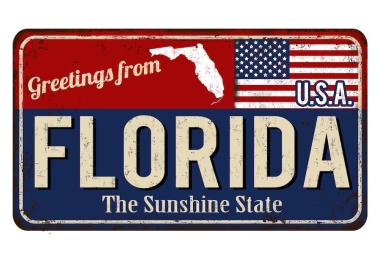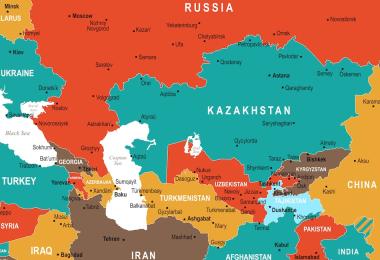Although Austria is responsible for only one percent of global wine production both wine professionals and consumers recognise the country as the source of unique world-class wines. From wine production, governance, marketing and events to retail and education, Austria continues to set benchmarks with innovative concepts, even during the Covid-19 crisis.
National associations
The Österreichische Weinbauverband (ÖWV), or Austrian Viticulture Association, documents wine production operations and guarantees the testing and inspection of all quality wines from Austria, with a red-white-red seal and inspection number. The association created a national wine committee and regional inter-professional committees in 2001 with the goal of establishing EU protected designations of origin and protected geographical indications. This process continues and has been complemented with a classification hierarchy for Austrian sparkling wines under current ÖWV president Johannes Schmuckenschlager and managing director Josef Glatt.
Other initiatives include the implementation of ÖPUL (an environmentally progressive agricultural program) and a sustainability certification. “Fourteen percent of Austria’s vineyards are currently farmed according to certified organic regulations. A further nine percent of the vineyard area is certified sustainable and nearly all of the remaining 77 percent of vineyard area is cultivated according to strict ÖPUL regulations for integrated production,” says Glatt.
The ÖWV is tackling the Covid-19 crisis by implementing an aid package that combines assistance from EU Corona Crisis Regulations and Austrian support programs. About 10m litres of wine from both the 2018 and earlier harvests has been purchased at €0.35 litre, plus VAT for distillation, to ease pressure on normal market prices. The ÖWV is also advocating for grape prices of at least €0.50 per kilo, the minimum price needed to cover costs of grape production. The abolition of the sparkling wine tax as of 1 July is helping sales in that sector.
The marketing board
After 15 years as the global marketing director of New Zealand Winegrowers, Englishman Chris Yorke returned to Europe to take over management of the Austrian Wine Marketing Board (AWMB), at the beginning of 2020. Austria’s wine exports hit new highs in 2019; according to Statistics Austria, exports surpassed the €180m mark to a record €183m, a rise of eight percent, while volume shot up 20% to 63m litres. The number of export countries rose to 102, in contrast to the 64 countries of 2009.
Shortly after taking the role, York was faced with the Covid-19 lockdown restrictions. He quickly reoriented AWMB’s activities to the remaining open channels. “We launched our ‘Taste the Origin’ campaign focusing on online and ex-cellar sales at the beginning of April,” he says, adding that the AWMB supported restaurants and heuriger [traditional wine taverns] as they re-opened. “We also established Austria’s largest-ever wine tourism platform – aufzumwein.at – that assists wine enthusiasts in exploring the wines and hospitality of over 1,800 Austrian wineries.”
The AWMB also adapted its international activities to the situation and online tastings in eight countries attracted more than 1,300 participants. More than 1,000 Austrian wines were promoted in co-operations with international online retailers, while hybrid events offered international wine professionals the opportunity to taste wines together with winemakers via video conferencing. Due to their success, hybrid events will remain a part of the AWMB strategy in the future.
Communication and events
Founded in 1991, Dorli Muhr’s Wine&Partners has evolved into a highly specialised consulting and PR agency for fine wines and gourmet products. Her list of clients includes not only prestigious names in Austria and Europe, but also from the New World. Muhr also established an organic boutique winery on Spitzerberg in 2002 and helped draw the world’s attention to a new style of fresh, more elegant, silky red wines from the underperforming Carnuntum region of Austria.
Wine&Partners has created several successful strategies for clients during the pandemic. After lockdown in Austria began on 13 March 2020, Dorli Muhr launched the social media initiative #mutmachen (“take courage”) that showcased inspiring projects and companies dealing with the crisis. Wine&Partners replaced the prestigious Österreichische Traditionsweingüter (ÖTW) vintner association’s annual weekend of open cellar doors with a virtual “Tour de Vin”. Consumers were able to order tasting packages from their favourite ÖTW vintners and taste the wines with the producer via an online video link.
After the cancellation of ProWein and Austria’s biannual VieVinum, Wine&Partners organised what was to become the country’s most important wine event of the year. At the Austrian Single-Vineyard Summit, held from 31 August to 3 September, European wine professionals participated in seated, silent tastings of single-vineyard wines from Leithaberg, Eisenberg and the ÖTW.
“The pandemic taught us to increase our acuity in matching strategies to fit the product and the situation,” says Muhr. “For fine wine and gourmet products, you must be highly specific and have a profound understanding of your target audience. In the end, the success of our efforts is not measured in the number of people reached or likes on social media, but the value of sales.”
Supermarket
Anne J. Thysell is director of the wine department for the SPAR-group, the undisputed leader in supermarket wine sales in Austria. Wine is sold at 1,560 SPAR locations, which include all SPAR, SPAR-Gourmet, EUROSPAR, and INTERSPAR markets and the online shop weinwelt.at. The SPAR wine assortment has approximately 1,700 SKUs, yet it is the unique selection – the selection specific to the stores and locations – that that is the key to its success. The total share of Austrian wine is 70 to 75 percent, but a selection of premium international wines is also available, even in the smaller stores.
“A relatively recent trend is organic and biodynamic wines. Our current share is around ten percent certified organic and increasing,” says Thysell. “All of our suppliers are being hit hard by the Corona crisis. Restaurant sales have collapsed, but we have been able to help winegrowers buffer the loss.” Thysell says that SPAR achieved double digit sales growth in the first half of 2020, well above the industry average. Some Austrian suppliers have seen increases of up to 40 percent, and she says that “the rising consumer demand for premium wines has been further boosted by Corona.”
Specialty stores
Willi Klinger took over management of WEIN & CO, Austria’s largest specialized wine merchant house on 1 January 2020, after playing a decisive role in the success of Austrian wine as the managing director of the AWMB for 13 years. WEIN&CO currently has 20 shops throughout Austria, seven of which have a wine bar or restaurant. The company also has a flourishing online trade which mainly caters to customers from Austria and Germany, but also from other EU countries. With almost three million bottles of wine, Wein & Co had a turnover of €38.3m in 2019.
“During the Corona lockdown, all our shops and restaurants were closed, but we were able to triple our online sales,” says Klinger. He says that while this did not make up for the losses, it kept the company solvent. “Government subsidies for furloughs were swift and efficient and allowed us to keep all 250 employees. We gained many new customers during lockdown and we tried to capitalise on this after re-opening our shops while simultaneously keeping internet sales strong. Compared to the first nine months of 2019, total sales actually eventually increased, and losses were compensated by the end of August.”
He adds that while the WEIN & CO brand has proved very strong and resilient, overhead costs are high for 20 shops. “We will thus soon open new shops in Austria. But why should such an attractive fine wine brand not go international, with Germany as a first target?”
Wine education
Founded in 1860, the Klosterneuburg Weinbauschule is the oldest school of viticulture and oenology in the world. To supplement this institution and Austria’s other regional vocational schools for wine production, the ÖWV initiated Bachelor and Master degrees at the University of Natural Resources and Life Sciences in Vienna.
Dr Josef Schuller MW has been the managing director of the Weinakademie Österreich (Austrian Wine Academy) since it was founded in 1991 as an independent non-profit institution focussed on wine education for adults. With over 800 seminars and around 15,000 participants each year, the Weinakademie Österreich is the largest wine school in continental Europe. The Weinakademie offers WSET Diploma courses in Austria, Germany, Switzerland, Hungary and Italy, and more than 900 Weinakademie students from 43 countries have achieved the WSET Diploma. “In cooperation with Geisenheim University in Germany and Zürich University in Switzerland, we have developed an even broader and deeper wine qualification in the German language that awards successful graduates with the prestigious Weinakademiker title. Former students fill key positions in the international wine branch and 11 have gone on to become Masters of Wine,” explains Dr. Schuller. The Weinakademie Österreich is also a host for the Institute Masters of Wine’s residential course for stage 1 Masters of Wine students.
Julia Sevenich








